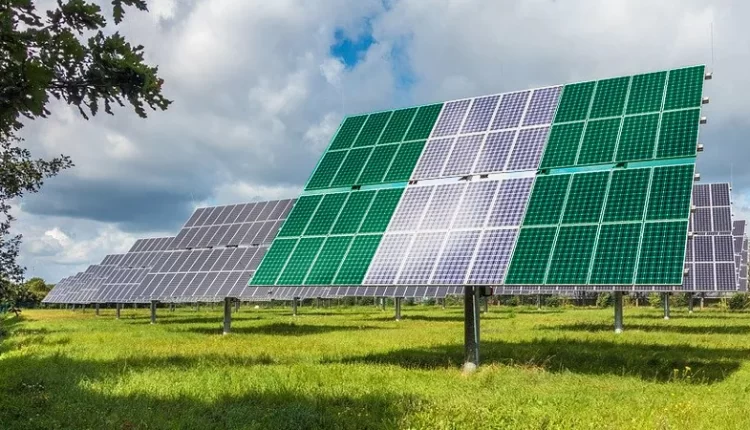NIGERIA LEADS PATH TO ACHIEVE NET ZERO GREEN HOUSE EMISSION BY 2060
By Temitope Mustapha
The 2023 United Nations Climate Change Conference UNCCC also known as the Conference of the Parties (COP28) ended last week with commitment by parties to reduce carbon emissions.
Member countries approved swift, just, and equitable transition, underlined reduction in emissions and increase in finance.
The Stocktake urges nations to work towards a threefold increase in global renewal energy capacity and a twofold enhancement in energy efficiency by 2030.
The parties agreed that these transitions should be conducted in a fair, organized, and equitable manner with developed countries maintaining leadership roles.
This year’s COP28 marks a significant milestone in global stock-taking and serves as the first critical assessment of global progress in implementing the 2015 Paris Agreement.
The conference acknowledged the voice of African countries globally and provided a platform that highlighted the continent’s challenges, opportunities, demands, and responses.
COP28 also provided the required attention by acknowledging Africa’s dissimilar climate challenges and introducing transformative commitments by all parties.
The effect of global warming has, over the years taken its toll on Lake Chad with water bodies across Africa drying, a development now affecting human activities in Nigeria and the African continent.
While Africa contributes an insignificant four percent of global carbon emissions, the second-largest continent in the world is the most vulnerable to the effects of climate change.
Within Africa, more than 60 percent of the continent’s carbon emissions are produced by South Africa, Egypt, and Algeria.
World carbon dioxide emissions rating revealed that Nigeria contributes 0.23 percent to the global share of fossil Green House Emissions.
But the continent now faces a heavy financial burden in transiting to cleaner energy sources.
Being aware of this negligible impact, African leaders called for the deployment of the continent’s renewable resources to process its essential minerals.
COP28 President, Sultan Ahmed Al-Jabar of the United Emirates, the host nation, secured a historic agreement to operationalize the loss and damage fund, which will assist developing countries that are vulnerable to the adverse effects of climate change.
This commitment from the President of COP28 led to financial pledges of 100 million dollars from Germany and the United Arab Emirates. Other European Union member States jointly promised 125 million dollars, with the United Kingdom pledging 50 million dollars.
With these pledges, the Conference of the Parties is seeking more responses to address mitigation and adaptation to further secure 17 point 5 million dollars from the United States of America and 10 million dollars from Japan to be administered from the World Bank.
Nigeria took advantage of the global climate conference to demand that Africa must not become a victim of disruptions to the climate and environment by adopting climate change mitigation measures.
Nigeria’s President Bola Ahmed Tinubu called on world leaders to de-risk and consider additional ventures in technological know-how as necessary measures for the recovery of Africa from the effects of climate change.
Leading other African countries, Nigeria is working towards achieving net zero greenhouse emissions by 2060 as part of energy transition plans, as a demonstration of its pledge to rescue the environment from climate-related disasters.
At the sidelines of COP28, the Nigerian government unveiled a vision for a greener nation with the rollout of 100 electric buses as a significant step towards a sustainable and eco-friendly future.
This initiative aimed at significantly reducing Nigeria’s carbon footprint and modernizing the country’s transportation systems as part of a larger effort to pioneer the frontier of green manufacturing and industrialization in Nigeria and Africa in the years ahead.
In line with Nigeria’s Energy Transition Plan, the government had signed off on the reduction of methane and the country is currently leveraging new technology.
The 28th Conference of Parties has also boosted Nigeria’s quest to switch to solar energy systems with the signing of an MoU with foreign firms to build a mega solar manufacturing plant in the country.
This initiative aligns with Nigeria’s commitment to sustainable local manufacturing, and infrastructure, achieving net zero emissions, and advancing transition to cleaner, sustainable energy sources to ensure gas exports and improved gas usage thereby reducing dependence on traditional fossil fuels to accelerate net zero emission economy by 2050 and 2060.

